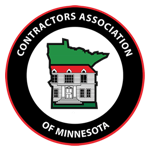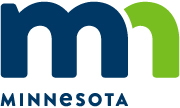Employees are protected by a number of state and federal laws. These protections and employers’ legal obligations are discussed in more detail below. Further updates and guidance for Minnesotans about COVID-19 is available at www.health.state.mn.us/diseases/coronavirus/index.html.
Use of sick leave
If your employer allows you to take time off for your own illness, your employer must also allow you to take time off to care for an ill minor child, adult child, spouse, sibling, parent, mother-in-law, father-in-law, grandchild, grandparent or stepparent. Your employer must allow you to use your sick time in the same manner as the employer would allow you to use the leave for yourself. Under current law, this provision may not apply to all employees and all employers.
Contact the Minnesota Department of Labor and Industry (DLI) at 651-284-5075, 800-342-5354 or dli.laborstandards@state.mn.us with questions.
The cities of Duluth, Minneapolis and St. Paul all have sick and safe time ordinances that require employers to offer paid time off when employees are sick:
•Duluth sick and safe time leave;
•Minneapolis sick and safe time leave; and
•St. Paul sick and safe time leave.
Family Medical Leave Act (FMLA)
Under the federal FMLA, covered employers must provide employees job-protected, unpaid leave for specified family and medical reasons, which may include COVID-19 where complications arise. Employees on FMLA leave are entitled to the continuation of group health insurance coverage under the same terms as existed before they took FMLA leave.
Call the U.S. Department of Labor, Wage and Hour Division, at 866-487-9243 with questions or see U.S. DOL’s COVID-19 FMLA guidance.
Employers cannot discriminate
The Minnesota Human Rights Act (MHRA) protects employees from discrimination on the basis of disability, race, national origin, age and other protected classes. Individuals with disabilities have the right to request “reasonable accommodations” from employers that are subject to the Americans with Disabilities Act and/or the MHRA.
If you have a disability that affects your risk for contracting COVID-19 or being harmed if you do contract the virus, you have the right to request a reasonable accommodation from your employer. For example, employees with disabilities that put them at high-risk for complications related to COVID-19 may request telework or paid/sick/unpaid leave as a reasonable accommodation to reduce their chances of infection during a pandemic.
Employers may ask employees if they are experiencing influenza-like symptoms, such as fever or chills, and a cough or sore throat. Employers must maintain all information about employee illness as a confidential medical record in compliance with state and federal law.
During a pandemic, employers may not ask employees who do not have known or apparent influenza symptoms whether they have a medical condition the Centers for Disease Control and Prevention (CDC) says could make them vulnerable to influenza complications. Under no circumstances may an employer make decisions based on stereotypes or bias.
If employees voluntarily disclose to their employer that they have a medical condition or a disability that places them at higher risk of COVID-19 complications, the employer must keep this information confidential.
Employers may not assume employees with known medical conditions or disabilities are at heightened risk of complications from COVID-19. For more information about pandemic preparedness in the workplace and relevant legal requirement for employers, visit www.eeoc.gov/eeoc/newsroom/wysk/wysk_ada_rehabilitaion_act_coronavirus.cfm.
The Minnesota Department of Human Rights is the state’s civil rights enforcement agency and enforces the MHRA. If you believe you have been discriminated against, contact the department at 651-539-1133, 800-6573704 or info.mdhr@state.mn.us or fill out a consultation inquiry form at mn.gov/mdhr/intake/consultationinquiryform.
Unemployment insurance benefits
If you lose your job or had your hours greatly reduced, you should apply for Unemployment Insurance (UI) benefits. The application process allows you to tell the UI program why you are not working. To get more information about Unemployment Insurance or to apply for benefits, visit www.uimn.org.
Gov. Tim Walz issued a March 16, 2020, executive order to better enable workers affected by the COVID-19 pandemic to access unemployment benefits. For more information about this executive order and some frequently asked questions and answers, visit www.uimn.org/applicants/needtoknow/news-updates/covid19.jsp.
Protections for workers who contract or have been exposed to COVID-19
Under a state health law, if you have contracted or been exposed to COVID-19, and the Minnesota Department of Health (MDH) recommends that you stay home (isolate or quarantine yourself), your employer may not discharge, discipline or penalize you for missing work. This protection also applies if you need to care for a minor or adult family member for whom MDH recommends isolation or quarantine. (The adult family member must
have a disability or be a vulnerable adult.) This employment protection is available for 21 workdays. For more information, call the number MDH will give you with its recommendation.
Workers’ compensation
If you contract a disease that arises out of and in the course of your employment, you may be entitled to workers’ compensation benefits, including payment of wage loss and medical benefits. However, you must show that you contracted the disease due to your employment.
If an emergency responder contracts an infectious or communicable disease that they are exposed to in the course of employment outside of a hospital, the disease is presumed to be an occupational disease due to the nature of their employment.
If you are not ill, but must stay home from work because you were exposed to the virus, you are not entitled to workers’ compensation benefits under current law.
Every case is fact specific. Call the Department of Labor and Industry at 800-342-5354 (press 3) if you have a question about whether you are entitled to workers’ compensation benefits.
Final wages
If your employment ends and your former employer has not paid you your final wages, there are several steps you can take to ensure you are paid all the wages you are due. To learn what steps you can take to receive your final wages, visit the making a demand for final wages page.
Changes to working conditions
Overtime mandates
If employers schedule and require employees to work overtime hours, then they must pay any overtime that is earned under either state or federal law. State law provides one exception to required overtime for nurses. Other employees may be covered by collective bargaining agreements that contain provisions allowing employees to opt out of overtime hours.
Work location changes
Employers are required to track, record and pay for all hours of work performed by employees and may, in certain circumstances, be required to reimburse employees for work-related expenses. These expenses may not be required to be reimbursed until the end of employment.
Hours worked; hours paid
Salaried exempt workers
Under limited situations when a business decides to cut business hours, the employer can reduce the salary of an exempt worker. If a salaried exempt worker misses a full day of work the employer may deduct a proportional amount of their salary. This deduction can be only be made if the employee does not complete any work activities during that day.
Volunteering
Unpaid volunteer work may be performed for nonprofit organizations or government agencies. For-profit employers are required to pay the minimum wage and overtime, among other labor standards’ requirements, for those completing work activities.
Workplace safety and health
To get more information about workplace safety or health related to COVID-19, visit www.dli.mn.gov/business/workplace-safety-and-health/mnosha-compliance-novel-coronavirus-covid-19.
Your employer may not retaliate against you for reporting health and safety concerns at work. If you believe your employer retaliated against you, you may file a complaint with Minnesota OSHA within 30 days of the adverse employment action.
Contact Minnesota OSHA Compliance at osha.compliance@state.mn.us, 651-284-5050 or 877-470-6742 with questions.


